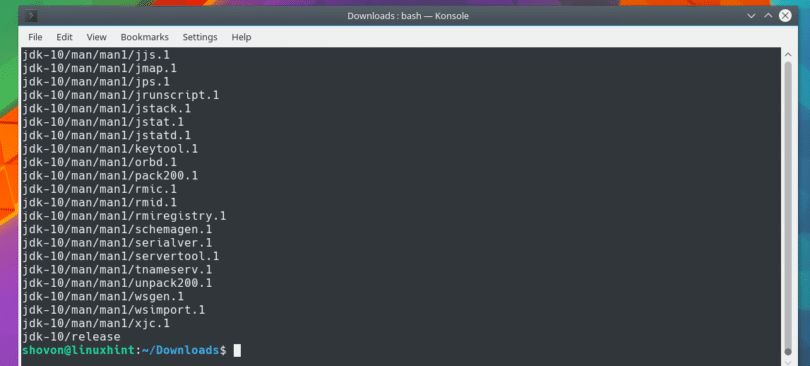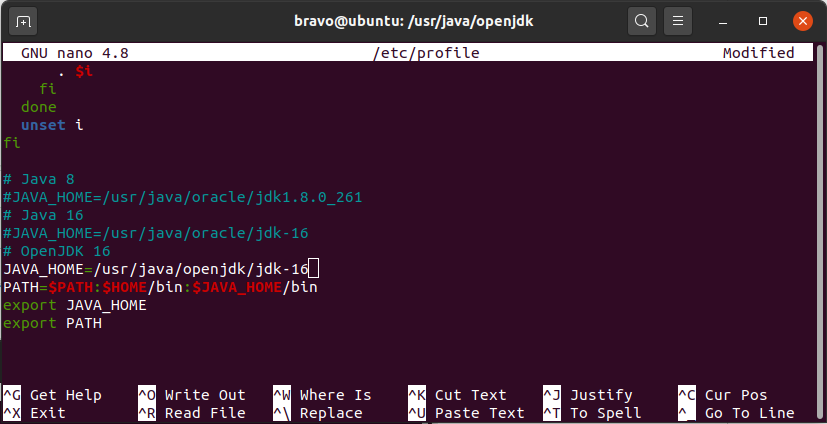

- INSTALL OPENJDK 11 DEBIAN 10 HOW TO
- INSTALL OPENJDK 11 DEBIAN 10 INSTALL
- INSTALL OPENJDK 11 DEBIAN 10 UPDATE
- INSTALL OPENJDK 11 DEBIAN 10 MANUAL
- INSTALL OPENJDK 11 DEBIAN 10 ARCHIVE
Headless Java Development Kit (without GUI support). Java Development Kit (including graphic components).

The placeholder stands for the major Java version. The following table lists the DEB packages that are available from the Azul APT repository.
INSTALL OPENJDK 11 DEBIAN 10 INSTALL
You can also install the dependent packages separately.įor example, if your application requires JRE only, you can install just the JRE package (or headless JRE) without downloading unnecessary dependencies. When you install the JDK package, you install the package itself and all its dependencies. Thus, the JDK package is split into multiple packages, such as JRE, documentation, source files, and so on. The Azul APT repository uses the package dependency paradigm typical for Linux distributions where packages that provide complex functionality depend on packages with more basic functionality.

Coordinated Restore at Checkpoint (CRaC).Azul Zulu 16.30 for macOS (Apple Silicon).Azul Zulu 16.30 for Musl-based Linux on Arm64.Azul Zulu Builds of OpenJDK Release Notes.
INSTALL OPENJDK 11 DEBIAN 10 MANUAL
Update-alternatives: using /opt/jdk-17.0.1+12/bin/java to provide /usr/bin/java (java) in manual mode ConclusionĬongratulations! Java 11 (OpenJDK 11) is installed on your Debian 11|10|9 system. Now, configure Java environment: sudo tee /etc/profile.d/jdk.sh hello_world.java to keep the current choice, or type selection number: 1 Move the resulting folder to /opt directory.
INSTALL OPENJDK 11 DEBIAN 10 ARCHIVE
Using the tar command, extract the downloaded OpenJDK 11 archive file: tar xvf openjdk-11+28_linux-圆4_ Install wget after updating your package list: sudo apt updateīefore running the command below, make sure you have the most recent version of OpenJDK 11: wget The GNU General Public License version 2 applies to OpenJDK, which is a free and open-source implementation of the Java Platform, Standard Edition. OpenJDK 64-Bit Server VM (build 11.0.13+8-post-Debian-1deb11u1, mixed mode, sharing) 2) Manually install OpenJDK 11 on Debian 10|9 OpenJDK Runtime Environment (build 11.0.13+8-post-Debian-1deb11u1) This means that the following packages can be installed from the OS APT repositories: # Install openJDK JDK 11Ĭonfirm Java version installed: $ java -version Uwsgi-plugin-servlet-openjdk-11 - JWSGI plugin for uWSGI (OpenJDK 11) Uwsgi-plugin-ring-openjdk-11 - Closure/Ring plugin for uWSGI (OpenJDK 11) Uwsgi-plugin-jwsgi-openjdk-11 - JWSGI plugin for uWSGI (OpenJDK 11) Uwsgi-plugin-jvm-openjdk-11 - Java plugin for uWSGI (OpenJDK 11) Openjdk-11-jre-dcevm - Alternative VM for OpenJDK 11 with enhanced class redefinition Openjdk-11-source - OpenJDK Development Kit (JDK) source files Openjdk-11-jre-zero - Alternative JVM for OpenJDK, using Zero Openjdk-11-jre-headless - OpenJDK Java runtime, using Hotspot JIT (headless) Openjdk-11-jre - OpenJDK Java runtime, using Hotspot JIT Openjdk-11-jdk-headless - OpenJDK Development Kit (JDK) (headless)

Openjdk-11-jdk - OpenJDK Development Kit (JDK) Openjdk-11-doc - OpenJDK Development Kit (JDK) documentation Openjdk-11-demo - Java runtime based on OpenJDK (demos and examples) Openjdk-11-dbg - Java runtime based on OpenJDK (debugging symbols) Libjax-maven-plugin - Using the xjc goal with OpenJDK 11+
INSTALL OPENJDK 11 DEBIAN 10 UPDATE
Packages for Java 11 can be found in the Debian 11 repository, as shown below: $ sudo apt update
INSTALL OPENJDK 11 DEBIAN 10 HOW TO
In this blog post, you shall learn how to install Oracle Java 11 (OpenJDK 11) on Debian 11/10/9.


 0 kommentar(er)
0 kommentar(er)
